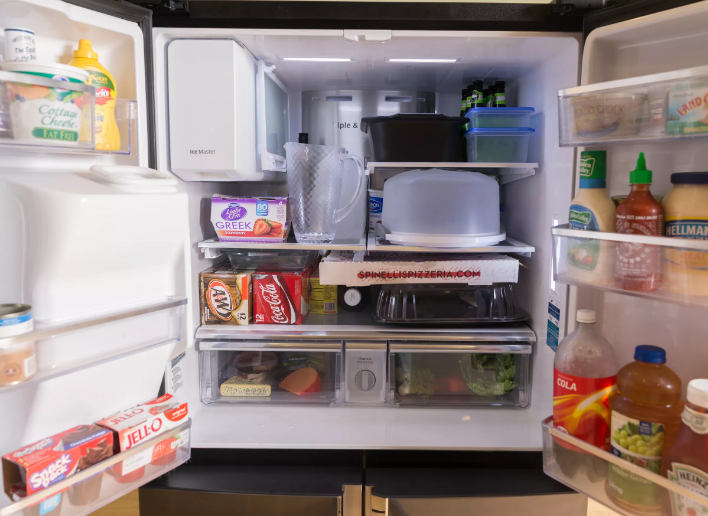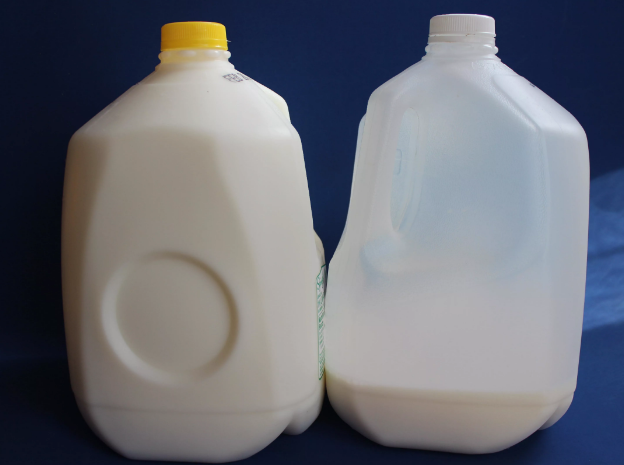
These surprising tips will keep your food from spoiling for days. Consumer electronics show will tell you when it's time to throw it out.
Opening your refrigerator to find that your fresh food has turned slimy, funky or even moldy is heartbreaking. Not only do you have to throw out the offending items, but now you have less to eat. Knowing when it's time to purge your fridge of certain foods that have gone past their prime is important. But so is preserving the life of your milk, eggs, fruit, vegetables and meat.
There are some surefire methods for prolonging the shelf life of your fridge food, including some editor favorites. For example, keeping perishable dairy items in the coldest part of the fridge, and using a surprisingly simple kitchen staple to keep away lettuce rot.
Of course, keep in mind that the FDA recommends keeping refrigerated foods at or below 40 degrees. And the Mayo Clinic says that after four days, the risk of harmful bacteria increases. So it's a good idea to perform the sniff and feel test before eating any items that have been sitting in the fridge for a while. If something smells or looks off, it isn't worth the risk.
Keep your greens fresher for longer
Once your salad, spinach and other greens start looking dark, wet or slimy, they're no longer any good. You'll notice they have a less earthy green smell and more of a pungent aroma. And if you don't have time to turn them into a pesto sauce, you can make them last longer with the help of a simple kitchen tool -- paper towels.
When you buy herbs like cilantro or a bunch of spinach, wrap a paper towel or two around them to absorb any moisture from the grocery store water spray, which can cause mold. For plastic tubs of greens like salad, layer some paper towels throughout the tub -- three should do the trick -- to keep villainous moisture at bay.
If you'd rather go green, CNET sister site Chowhound recommends using produce bags, storage containers and reusable paper towels after rinsing your greens to make them last longer. They also recommend poking small holes in the plastic bags you do use in order to promote greater air circulation.
When you're ready to eat your greens, make sure you rinse them to remove any lingering bacteria. You can also prewash your greens, like romaine lettuce leaves, and let them dry completely before storing them wrapped in towels for the fridge. If any individual leaves look like they're decaying, toss them out, but give the container a good sniff, too.
Keep your milk and other dairy foods from going sour too soon
If you've noticed the milk and other dairy items you buy seem to be some of the first to spoil, it's probably because you're storing them the wrong way. You may think as long as you put them in the fridge immediately after use they'll be okay -- but that's not always true.

CNET's smart home team thoroughly tests refrigerators using industry standards in order to find the best ones -- and here's what they've found. Your refrigerator temperature isn't even, with some spots typically colder than others. For example, the back of the fridge tends to stay chillier, so it's a much better place to store milk than the side door.
Not only is the door more temperate than the back of the fridge, you also expose food at the front of the fridge to warm kitchen air every time it opens. Dairy and other perishables should stay fresher several days longer when kept in the back.
A common tip suggests putting just a pinch of salt into milk after opening to make it last a week longer past its expiration date. Full disclosure: We haven't tried it. If you don't think you'll be able to drink the milk before it expires, the Dairy Council of California states you can freeze it and thaw it out when you're ready to drink it.
However, make sure you're following your own common sense and smell the milk before drinking. If it smells sour or looks clumpy when you pour it into a glass, toss it out immediately. The same goes for other dairy products, like yogurt, heavy cream and sour cream.
Don't let your eggs spoil

Along with dairy products, eggs should also be stored in a cool spot in your fridge. That means keeping them out of the door and instead near the back of the fridge.
If you're not sure they're still good and the sell-by date is overdue, you can conduct the egg test. Fill a bowl with water and place in one egg at a time. If the egg sinks to the bottom, it's good to eat. If it floats, it's time to toss it out.
Toss any deviled eggs that have been sitting out for several hours. Since they're made with perishable items like mayonnaise, they can't stay at room temperature for long. However, if you've refrigerated them, you can safely eat them up to two days later.
Source: Katie Conner